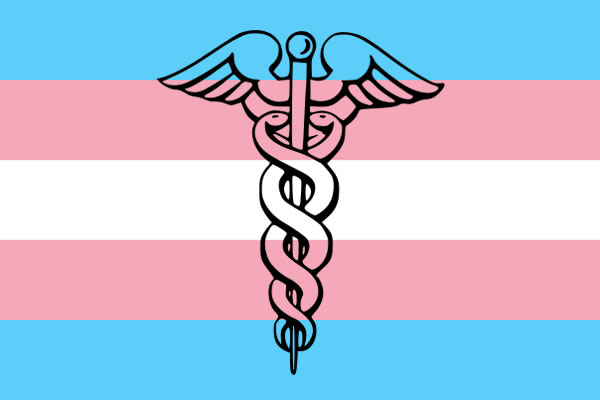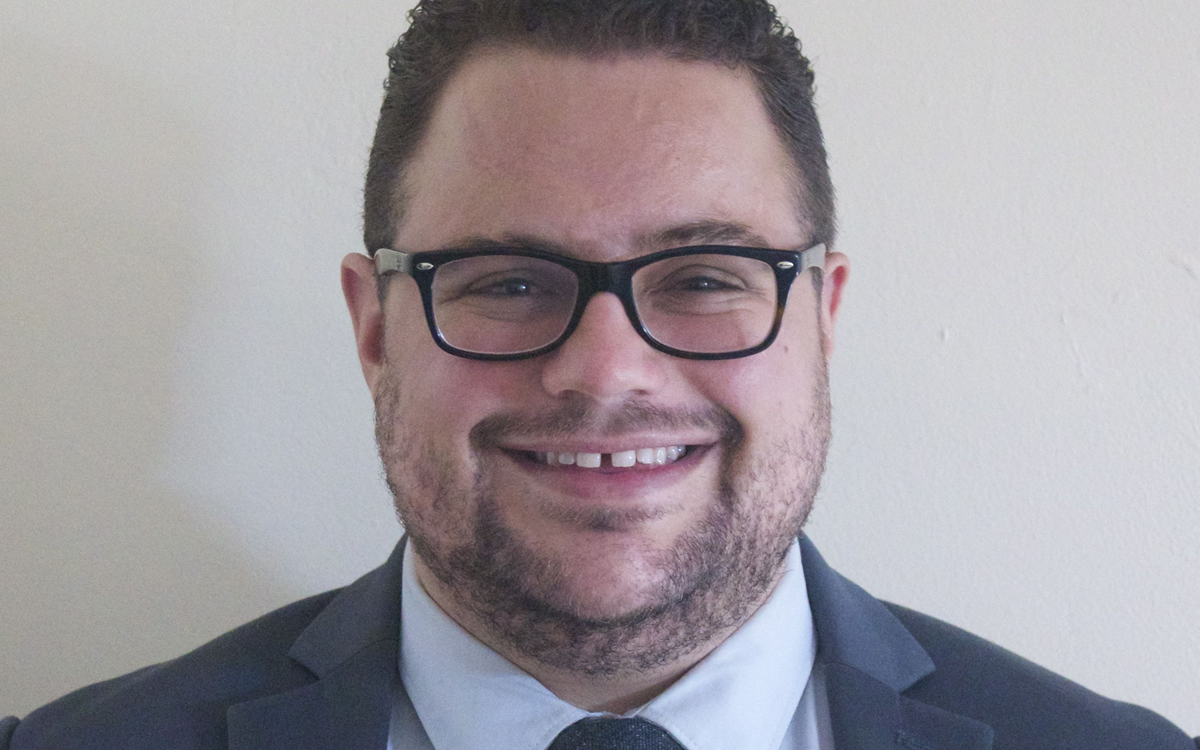National
Medicare asked to review ban on gender reassignment surgery
Anti-trans policy established in 1981


LGBT groups are askng Medicare to lift its ban on gender reassignment surgery. (Image public domain)
Medicare is being asked to review a policy that prohibits transgender people from receiving coverage for gender reassignment surgery.
Last week, a quartet of LGBT rights groups — the National Center for Lesbian Rights, the American Civil Liberties Union, Gay & Lesbian Advocates & Defenders and civil rights attorney Mary Lou Boelcke — filed an administrative challenge to eliminate Medicare’s ban on coverage for the procedure.
Joshua Block, a staff attorney with the ACLU’s LGBT Project, said the challenge was filed because a policy change is “overdue.”
“It is completely out of line with any scientific or medical evidence or standards of practice,” Block said. “There are people out there who are in desperate need of the surgery. Their doctors have told them they need the surgery. And they’re being told it’s not covered because it was allegedly experimental 30 years ago.”
The challenge, sent on March 26, was filed on behalf of Denee Mallon, a transgender woman in Albuquerque, New Mexico. A Medicare recipient who’s age 73, Mallon was recommended to have gender reassignment surgery by doctors to treat her gender dysphoria.
A veteran of the U.S Army, Mallon joined the the service when she was 17 and worked as a forensics investigator for a city police department. She was later diagnosed with gender identity disorder.
Mara Keisling, executive director of the National Center for Transgender Equality, said she’s “very excited” about the challenge.
“Americans, in general, are really tired of health care decisions being made by legislators and bureaucrats and insurance companies,” Keisling said. “Most of us believe that health care decisions should be made by patients and doctors, and the medical community is pretty unified. This is a legitimately necessary surgery.”
Keisling said NCTE isn’t directly involved in the challenge because it involves lawyers representing clients, and the organization doesn’t provide those legal services.
The ban, which is codified as National Coverage Determination 140.3, was put in place in 1981 during the Reagan administration. Keisling said the ban was put in place as a result of the stigma on transgender people at the time and lobbying from insurance groups.
The National Coverage Determination from 1981 spells out why transgender people are unable to receive this coverage under Medicare.
“Transsexual surgery for sex reassignment of transsexuals is controversial,” the regulation states. “Because of the lack of well controlled, long term studies of the safety and effectiveness of the surgical procedures and attendant therapies for transsexualism, the treatment is considered experimental. Moreover, there is a high rate of serious complications for these surgical procedures. For these reasons, transsexual surgery is not covered.”
Despite this policy, the American Medical Association and the American Psychological Society support gender reassignment surgery for transgender people.
Block said the challenge has been filed at this time — more than 30 years after the ban was put in place — because “each year that goes by, it becomes ever more clear how unfounded the categorical sweeping ban is.”
“Each year that goes by, there’s more and more evidence that just reaffirms the widely accepted view that these surgeries are safe, medically necessary and effective to treat a serious medical condition,” Block said.
Now that the challenge has been filed, the Department Appeals Board of the Department of Health & Human Services is set to review the ban, determine if it’s reasonable under current standards of care and make a decision on whether to reverse it. It’s estimated the process could take months to resolve.
It’s unclear how many transgender people the change would affect. A recent study from the Williams Institute found that one-third of one percent of Americans identify as transgender. Given that an estimated 48 million people receive coverage under Medicare, about 144,000 transgender people are believed to receive coverage under Medicare.
In an apparently separate development last week, the Centers for Medicare & Medicaid Services included a statement on its website asking for public comment because it would reconsider the ban. But the notice was removed on Friday from the agency’s website after conservative media, such as Drudge Report, took note of it.
Brian Cook, a CMS spokesperson, told the Blade solicitation for public comment was removed as a result of the legal challenge from LGBT groups coming to light.
“An administrative challenge to our 1981 Medicare national coverage determination concerning sex reassignment surgery was just filed,” Cook said. “This administrative challenge is being considered and working its way through the proper administrative channels. In light of the challenge, we are no longer re-opening the national coverage determination for reconsideration.”
Although the challenge was filed last week, LGBT groups didn’t notify the press about it until Monday. Block said the notice that went up on the Medicare website — and its subsequent removal — prompted the news statement.
“I think there were a lot of questions — particularly by members of the transgender community — about the status of NCD and what this administrative challenge was, and so we thought it was important to give affirmative clarification about what this challenge is and how it’s separate from the CMS process,” Block said.
U.S. Supreme Court
Supreme Court to hear Md. religious freedom case on Tuesday
Advocacy groups to rally outside during Mahmoud v. Taylor oral arguments

Activists on Tuesday will hold a rally in front of the U.S. Supreme Court as the justices hear oral arguments in a case that will determine whether schools are violating parents’ religious freedom by not letting them opt their children out of learning about LGBTQ-specific topics.
Mahmoud v. Taylor is a case out of Montgomery County about parents who wish to opt their children out of LGBTQ-themed lessons in public schools for religious reasons.
Montgomery County Public Schools, after initially allowing parents to opt their children out, changed the policy in March 2023.
The plaintiffs — Tamer Mahmoud, Enas Barakat, and other parents — argue “the storybooks were chosen to disrupt ‘cisnormativity’ and ‘either/or thinking’ among students.”
“The board’s own principals objected that the curriculum was ‘not appropriate for the intended age group,’ presented gender ideology as ‘fact,’ ‘sham[ed]’ students with contrary opinions, and was ‘dismissive of religious beliefs,’” according to the petition on the Supreme Court’s website.
The petition goes further, saying the parents are “not challenging the curriculum, but arguing that compelling their elementary-age children to participate in instruction contrary to their parents’ religious convictions violated the Free Exercise Clause. Construing Wisconsin v. Yoder, the 4th Circuit found no free-exercise burden because no one was forced ‘to change their religious beliefs or conduct.’”
The Coalition for Inclusive Schools and Communities, an organization that aims to bring together “advocates, educators, families, and organizations committed to inclusive, affirming, fact and science-based education,” will participate in the “Rally for Inclusive Education” rally outside the Supreme Court alongside Live In Your Truth and the Montgomery County Pride Family.
“Inclusive education isn’t just a value — it’s a necessity,” said Phillip Alexander Downie, co-chair of the Coalition for Inclusive Schools and Communities and CEO of Montgomery County Pride Family. “The right of every child to learn in an environment where they see themselves reflected, affirmed, and respected is under attack. This rally is our moment to protect that right — and ensure future generations inherit classrooms rooted in truth, equity, equality, and justice.”
The Coalition for Inclusive Schools and Communities says the rally is a “nonpartisan community gathering rooted in education, advocacy, and solidarity.”
“The focus of this event is to uplift the importance of inclusive learning environments, celebrate the power of diversity in our schools, and amplify the voices of those most impacted by exclusionary practices and rhetoric,” it said.
The rally will feature speakers from across the country, including students, educators, civil rights leaders, and authors who will give their own testimonies as to why it is important to have inclusivity in primary education. Trans Maryland, the National Women’s Law Center, MoCoPride Center, and Authors Against Book Bans are among the LGBTQ groups sponsoring the event.
National
EXCLUSIVE: Rodrigo Heng-Lehtinen to step down from Advocates for Trans Equality
A4TE formed last year when two transgender rights groups merged

Advocates for Trans Equality Executive Director Rodrigo Heng-Lehtinen on Monday announced he will step down on April 30.
The Transgender Legal Defense and Education Fund and the National Center for Transgender Equality formed Advocates for Trans Equality last year when they merged. Heng-Lehtinen was previously NCTE’s executive director.
“Now that we’ve made it through the merger, and A4TE is established as a new, prominent institution fighting hard for trans equality, it’s time for me to take my next step,” said Heng-Lehtinen in a press release that Advocates for Trans Equality sent exclusively to the Washington Blade. “When Andy (Hong Marra) and I began envisioning the merger, I committed to seeing it through. I’m proud that now our vision has been realized. A4TE has not just launched, but is fully up and running, delivering results for trans people around the country. With A4TE gaining momentum, I’m now ready to move on to my next chapter.”
Heng-Lehtinen, whose mother is former Florida Congresswoman Ileana Ros-Lehtinen, in the press release stressed he “will be focusing on changing hearts and minds.”
“With my background in persuasion and messaging, it’s where I can make the biggest difference, and what I feel called to return to in this era of anti-trans backlash,” said Heng-Lehtinen. “I will still be fighting shoulder-to-shoulder with everyone (in) the trans movement, simply in a different capacity.”
Marra, who is Advocates for Trans Equality’s CEO, praised Heng-Lehtinen and said the organization’s work will continue.
“We thank Rodrigo for his years of dedicated leadership and service,” said Marra. “A4TE will continue to deliver on our promise to advocate for the lives of trans people who need us now more than ever. We remain undaunted by our endeavor to ensure trans people and our families are no less than free and equal and treated with dignity and respect.”
Louisiana Trans Advocates Executive Director Peyton Rose Michelle also praised Heng-Lehtinen.
“Rodrigo has been a steady hand and a bright light in this work,” she said. “He’s someone who shows up with integrity, kindness, and a deep commitment to meeting this political moment with courage. I’ve always felt deeply supported and heard by him, which is something I value deeply.”
“I fully support him as he steps into this new chapter, and I know his clarity of vision and heart-forward leadership will keep shifting this landscape back toward justice for trans people, and therefore, all people,” added Michelle.
U.S. Federal Courts
Federal judge blocks Trump passport executive order
State Department can no longer issue travel documents with ‘X’ gender markers

A federal judge on Friday ruled in favor of a group of transgender and nonbinary people who have filed a lawsuit against President Donald Trump’s executive order that bans the State Department from issuing passports with “X” gender markers.
The Associated Press notes U.S. District Judge Julia Kobick in Boston issued a preliminary injunction against the directive. The American Civil Liberties Union, which represents the plaintiffs, in a press release notes Kobick concluded Trump’s executive order “is likely unconstitutional and in violation of the law.”
“The preliminary injunction requires the State Department to allow six transgender and nonbinary people to obtain passports with sex designations consistent with their gender identity while the lawsuit proceeds,” notes the ACLU. “Though today’s court order applies only to six of the plaintiffs in the case, the plaintiffs plan to quickly file a motion asking the court to certify a class of people affected by the State Department policy and to extend the preliminary injunction to that entire class.”
Former Secretary of State Antony Blinken in June 2021 announced the State Department would begin to issue gender-neutral passports and documents for American citizens who were born overseas.
Dana Zzyym, an intersex U.S. Navy veteran who identifies as nonbinary, in 2015 filed a federal lawsuit against the State Department after it denied their application for a passport with an “X” gender marker. Zzyym in October 2021 received the first gender-neutral American passport.
The State Department policy took effect on April 11, 2022. Trump signed his executive order shortly after he took office in January.
Germany, Denmark, Finland, and the Netherlands are among the countries that have issued travel advisories for trans and nonbinary people who plan to visit the U.S.
“This ruling affirms the inherent dignity of our clients, acknowledging the immediate and profound negative impact that the Trump administration’s passport policy would have on their ability to travel for work, school, and family,” said ACLU of Massachusetts Legal Director Jessie Rossman after Kobick issued her ruling.
“By forcing people to carry documents that directly contradict their identities, the Trump administration is attacking the very foundations of our right to privacy and the freedom to be ourselves,” added Rossman. “We will continue to fight to rescind this unlawful policy for everyone so that no one is placed in this untenable and unsafe position.”
-

 State Department4 days ago
State Department4 days agoHIV/AIDS activists protest at State Department, demand full PEPFAR funding restoration
-

 Brazil5 days ago
Brazil5 days agoUS lists transgender Brazilian congresswoman’s gender as ‘male’ on visa
-

 District of Columbia4 days ago
District of Columbia4 days agoCapital Pride wins $900,000 D.C. grant to support WorldPride
-

 Obituary3 days ago
Obituary3 days agoLocal attorney, LGBTQ rights advocate Dale Sanders dies at 75












